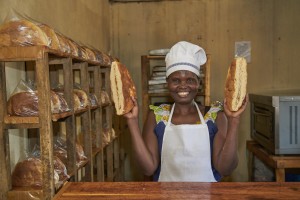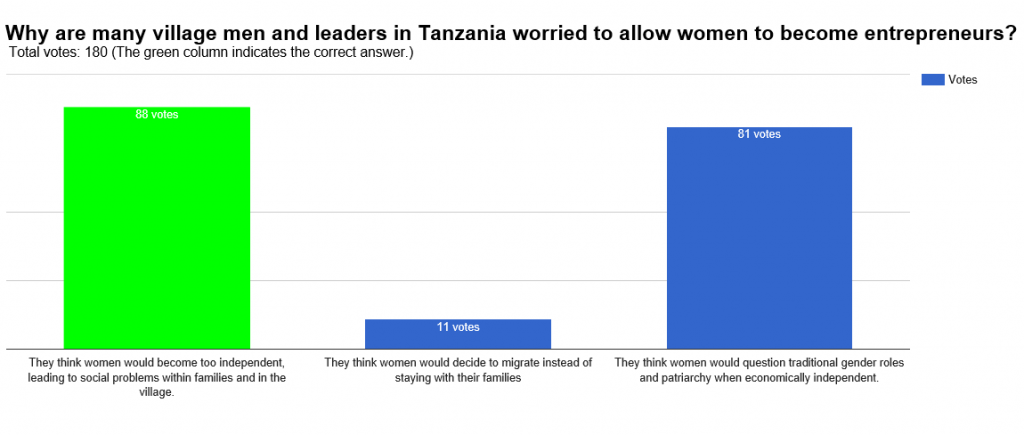 According to the 2017 Global Gender Gap Report, Tanzania ranks 68th out of 144 countries in terms of women’s economic participation, and is far away from closing the gender gap. Access to and utilization of electricity in Tanzania continues to be highly gender-imbalanced, with men predominantly regarded as the primary producers and productive users of electricity.
According to the 2017 Global Gender Gap Report, Tanzania ranks 68th out of 144 countries in terms of women’s economic participation, and is far away from closing the gender gap. Access to and utilization of electricity in Tanzania continues to be highly gender-imbalanced, with men predominantly regarded as the primary producers and productive users of electricity.
Thus, JUMEME, a micro-utility that implements and operates Solar-Hybrid Mini-Grids in remote settlements in Tanzania with co-funding from EU and the Energy and Environment Partnership, used to focus on male-owned businesses. With most village men and leaders being worried that allowing women to become entrepreneurs would make them too independent, leading to social problems within families and in the village, JUMEME’s local staff was not willing to take the risk of doing business with women.
Thus, women did not have access to financing; neither did they have sufficient self-confidence to start their own business or the courage to approach male customers directly when trying to sell their products. The “Unlocking Benefits of Electrification for Women” (UBEW) project initiated by GIZ was set-up to addressing gender roles, changing business culture and practice and unlocking women’s potentials. UBEW is a development partnership between the GIZ Sustainable Energy programme, GIZ’s Employment and Skills for Eastern Africa initiative (E4D/SOGA) and JUMEME. Since 2017, GIZ is collaborating with the UK Institute of Development Studies and the Economic and Social Research Foundation to provide scientific evidence of the benefits for a gendered approach.
GENDER – A QUALITY FEATURE OF OUR WORK
UBEW follows a systematic approach to promote equal employment benefits for men and women from village electrification projects with the vision to establish a Rural Energy Agency (REA) Gender Policy for all rural electrification projects. Today REA aims at financing energy access projects with due regards to gender and the National Gender and Sustainable Energy Network is working closely with all stakeholders to explain the benefits of electrification for women and creating new or better jobs. JUMEME is even considering offering special unsecured loans for women.
GENDER IMPACT
The UBEW project has gender perceptions and transformed life for many women in Bwisya. Women entrepreneurs are now seen as potential engines of development in the community. They are adding value to what they sell and manufacture products such as mosquito nets that used to be imported to the island.
GIZ and JUMEME are preparing to scale-up the project activities to reach up to 80,000 people in the Victoria Lake.
The full information can be downloaded. (in English) 2018 EN GenderAward RollUp Tanzania
The competition entry can be downloaded. (in English) 2018 EN Project Documentation Unlocking Benefits Of Electrification For Women
Have a look at the results of the second screen survey during the Gender Award Ceremony:
————————————————————-
Contact:
Sven Ernedal Project Manager
GIZ Sustainable Energy Programme
E: sven.ernedal@giz.de

 GIZ Gender Website
GIZ Gender Website



